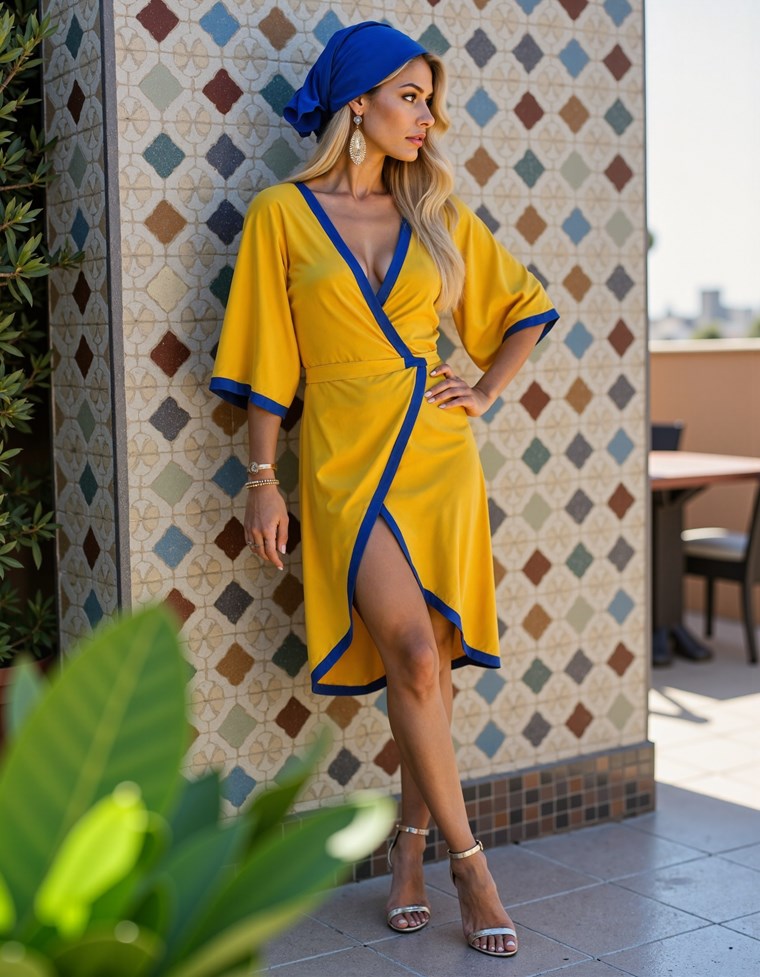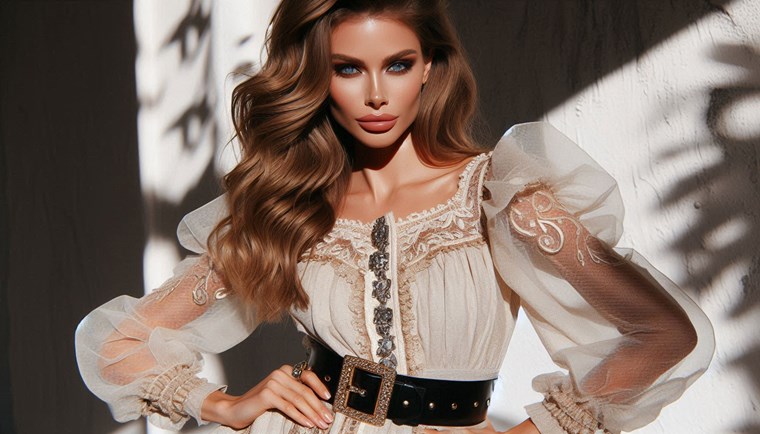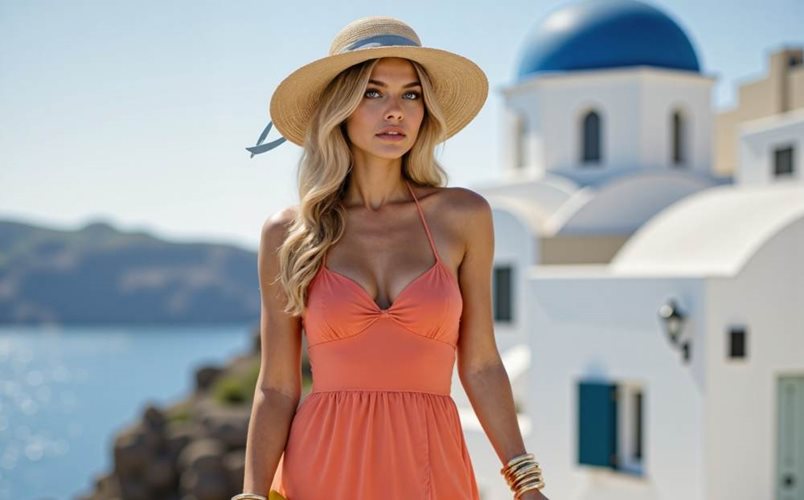
The fashion and beauty industries have always been at the cutting edge of visual culture— but with the rise of artificial intelligence, a new creative frontier is taking shape. From AI-generated styling to fully virtual campaigns, technology is now reshaping how content is imagined, produced, and shared. Even fashion giants like Prada and Balmain are beginning to experiment with AI-generated content in their campaigns, signalling a shift that’s as strategic as it is futuristic.
In this exclusive interview, Sam Emara — founder of Foxy AI—shares his perspective on how AI clones are transforming the way influencers and brands operate. As the line between physical and digital continues to blur, Emara explores how creators are leveraging AI to push creative boundaries, streamline production, and connect with audiences in bold new ways.
How has the rise of AI clones, like those created on Foxy AI, impacted the way beauty and fashion influencers create content?
AI clones are revolutionising how beauty and fashion brands and influencers create content. Many are using AI to generate content in settings like luxury hotel rooms or exotic destinations, which would normally require extensive planning and travel. All of this opens up endless creative possibilities while cutting down on time, cost, and logistics. It’s faster, more affordable, and offers a dynamic way to stay ahead of trends and push creative boundaries. Right now, creators on our platform generate 30–40% of their content using AI—a number we expect to grow as the technology continues to evolve.
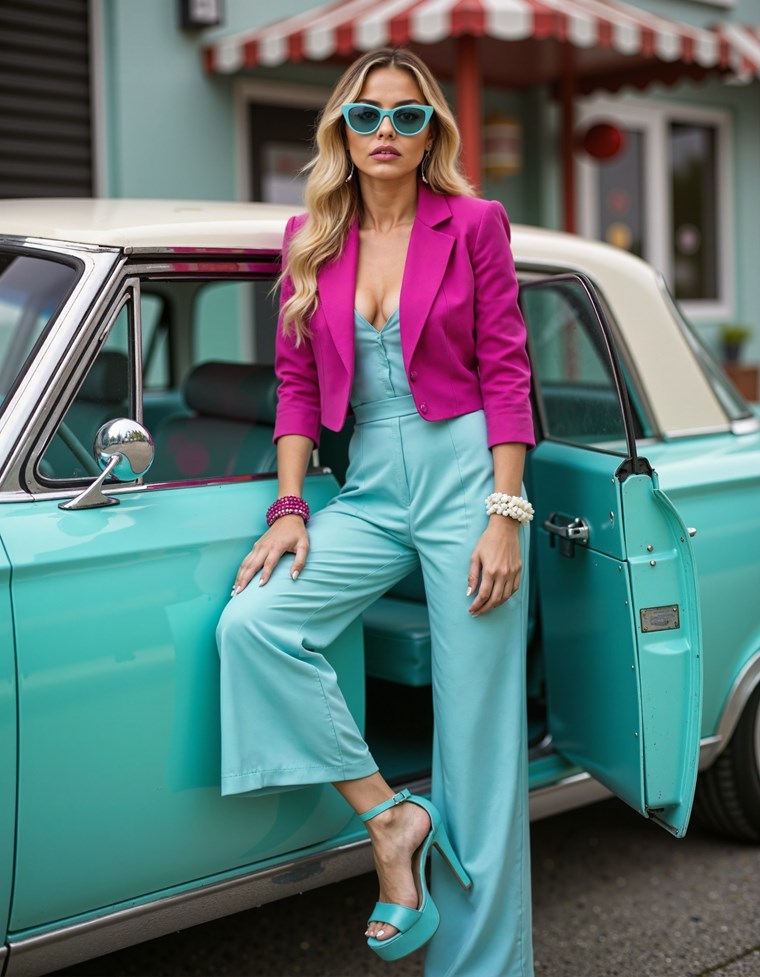
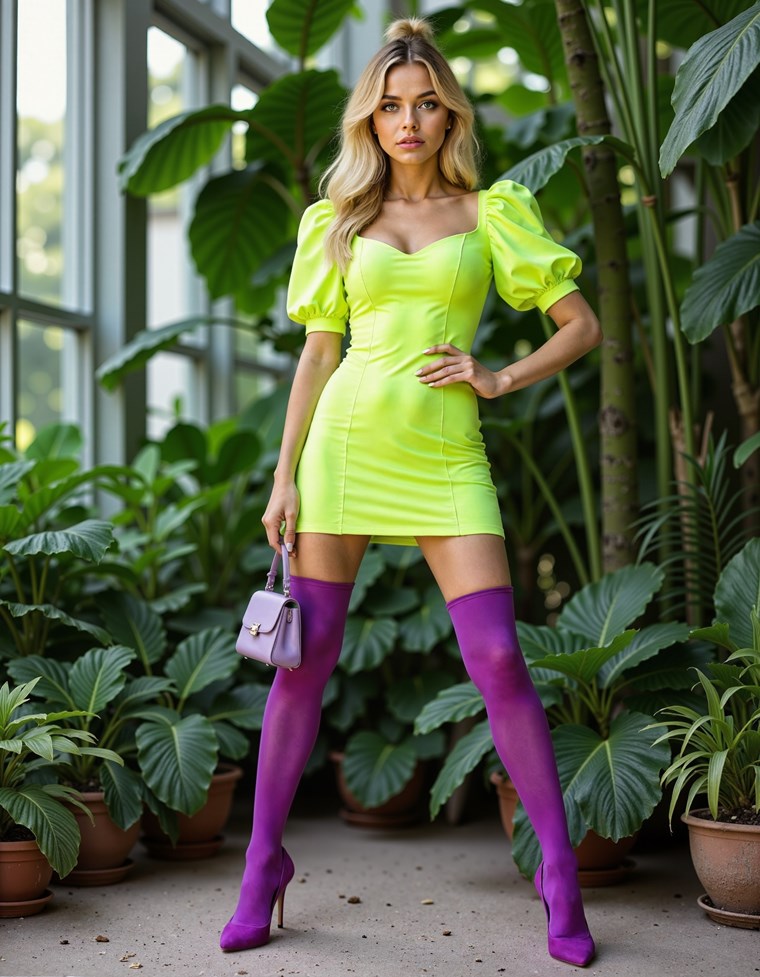
In the highly visual world of fashion and beauty, how do AI twins compare to traditional photoshoots in terms of authenticity and creativity?
With AI, influencers, brands and models can effortlessly explore a variety of looks, styles, and settings in just seconds. When it comes to authenticity, at Foxy, we collaborate exclusively with real-life creators — ensuring that every piece of content reflects their true likeness and remains fully owned by them. AI isn’t about replacing people; it’s about expanding creative horizons. While there will always be value in traditional content and photoshoots, AI empowers influencers with innovative tools to express themselves more freely and fulfil their potential, all while retaining complete control over their image.
Do you believe that big fashion brands are more inclined to use AI influencers to maintain a consistent brand image, or are they driven by the novelty and innovation AI offers?
Honestly, it’s a bit of both. These AI influencers are controllable, on-brand, and never out of character, which is crucial for maintaining brand integrity. At the same time, the novelty and innovation that AI brings to the table can’t be overlooked. AI allows brands to create dynamic, fresh content while experimenting with new looks, settings, and interactions that wouldn’t be possible with traditional methods. We feel that brands will primarily work with AI versions of real influencers to ensure consistency while tapping into the innovative potential AI offers to create engaging, forward-thinking content.
How does using an AI twin improve the workflow for influencers who juggle with high demand for social media posts, brand collaborations or product promotions?
AI can act as a content sidekick for influencers, helping them keep up with the relentless demand for social media posts and collaborations, even when they can’t shoot content in person. Whether due to travel, health issues, or tight schedules, creators can still produce high-quality content without the need for traditional photoshoots or physical effort. With AI, influencers can also promote brand collaborations and campaigns in real-time — simply by uploading a few product pictures and generating content that shows them using the product. This frees up valuable time for influencers to focus on other aspects of their business, all while ensuring they’re consistently delivering fresh, engaging content.
How are celebrities, brands and influencers using AI clones to experiment with different looks, settings, or even fantasy scenarios that they wouldn’t be able to pull off in real life?
They’re using AI clones and AI-generated content to create outlandish, mind-bending content that would be impossible in the real world. For example, they’re battling dragons in medieval kingdoms, exploring alien planets, or walking through futuristic cities—all while sitting at home in their PJs. They can instantly transform into anything from a space explorer to a runway model, all without the cost or logistical nightmare of a big production. AI gives them the freedom to push the boundaries of what’s possible and create content that shocks and delights their audiences, bringing their most outrageous creative visions to life.
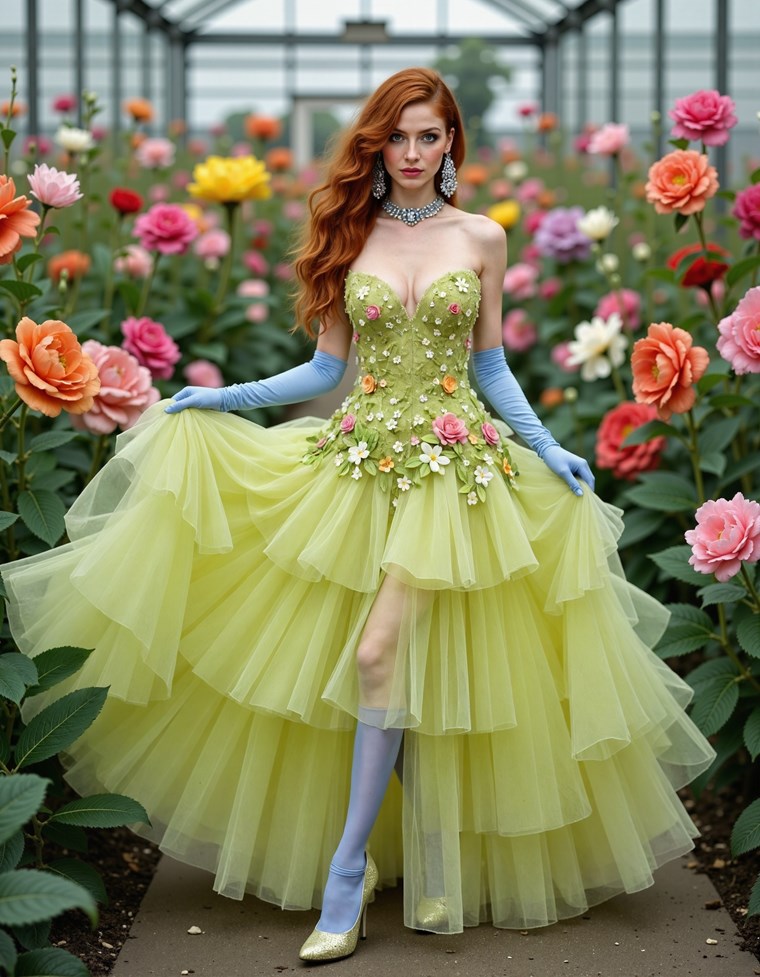
AI technology can raise concerns about ethics, especially in industries like beauty and fashion. What steps should AI tech firms take to ensure that AI clones are used responsibly and with full consent?
I can’t speak for other AI tech firms. However, at Foxy AI, ethics and consent are at the core of everything we do. We only allow real-life creators to use our AI technology, meaning all AI clones are based on the individual’s true likeness and created with their explicit consent. We have built robust safeguards to prevent misuse, including digital watermarks for traceability and transparency. Creators have full control over their AI models — they can pause, delete, or retrain their models at any time. Our goal is to empower creators by giving them the ability to enhance their content, but always with their full ownership and control. We're committed to empowering creators with cuttingedge technology, without compromising their rights or identity.
In what ways do you think AI-generated content, particularly from AI twins, will continue to evolve within the fashion, beauty, and wellness industries in the next few years?
It’s going to get more personalised and immersive in the coming years. We’ll see AI twins becoming central to virtual try-ons, where influencers and consumers can experiment with customised makeup looks, hairstyles, and outfits in real-time, before committing to a purchase. Imagine a world where you can virtually try on a full wardrobe from your favourite brands - and create content wearing it - without ever stepping into a store. In wellness, we’ll see AI-driven routines personalised for individual users, offering fitness coaching, nutrition advice, and self-care practices through virtual avatars.
Given that top-tier fashion brands are already experimenting with AI clones and AI influencers, how do you foresee AI technology changing the way these brands create and market their products in the future?
AI technology will radically reshape how top-tier fashion brands create advertising campaigns and market products. Rather than relying solely on traditional photoshoots, brands will use AI clones of real influencers to produce high-quality content at scale, without the need for expensive production teams or location shoots. AI will allow brands to create personalised campaigns at lightning speed, tailoring content to different regions, demographics, or even individual preferences in real time. Brands will also be able to experiment with bold, new ideas—from virtual runway shows to interactive experiences where AI influencers "wear” new collections in futuristic settings. By using AI, brands can also increase their output, test content before a physical shoot, and drive more engagement across digital channels. The future of fashion marketing will see brands leveraging AI to blend creativity, authenticity, and efficiency in ways that were once unimaginable, transforming how they interact with consumers and showcase their products.
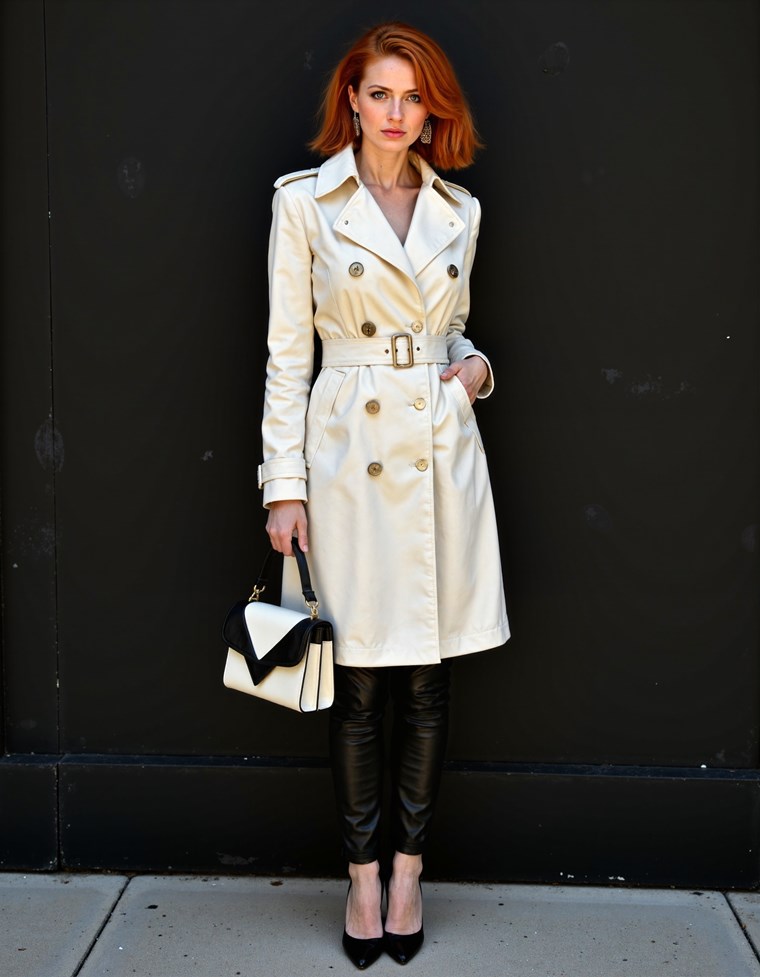
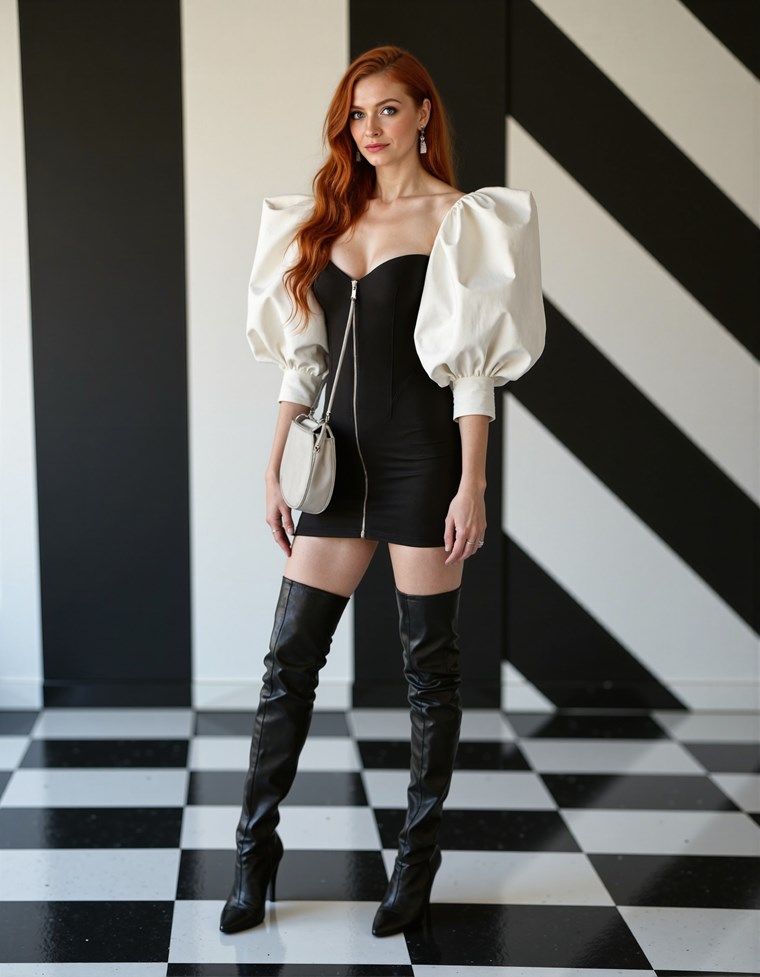
As AI clones become more common in influencer content, do you think audiences will feel more or less connected to the people they follow?
While the rise of AI might initially raise concerns about authenticity, we believe audiences will actually feel more connected to the creators they follow. AI clones of real influencers enable deeper engagement because creators can produce more consistent, high-quality content with less effort. This allows them to stay present and connected with their audience, even when they can’t create content in person. AI-driven chatbots and voice technology will also offer personalised interactions, giving fans unprecedented access to an interactive experience with their favourite influencers. The key is that the AI clone should always stay true to the creator’s likeness, ensuring the audience still connects with the real person behind the content — just in a more dynamic and creative way. As AI technology improves, the content will feel authentic, even if it’s AI-generated, because it reflects the creator’s true identity and personal brand.
Do you think audiences will eventually prefer AI-generated content if it’s more curated, polished, and fantasy-driven — or will the human element always be more compelling?
While AI-generated content can offer curated, polished, and fantasy-driven experiences that captivate audiences, we believe the human element will always have a unique appeal. People connect with real stories, genuine emotions, and the imperfections that make creators authentic. AI can enhance creativity and bring new, exciting possibilities, but it will never fully replace the human connection that audiences crave. Ultimately, the best content will blend human authenticity with the innovative potential of AI—creating a more dynamic and engaging experience that keeps audiences coming back.
How can influencers and brands maintain transparency with their followers when using AIgenerated content? Should there be an industry standard for disclosing what’s real and what’s AI?
Transparency is key when using AI-generated content. Influencers and brands can maintain trust by clearly disclosing when content is AI-generated, whether it’s in captions, videos, or through a dedicated disclosure tag. Being open about using AI tools can enhance credibility while showing that the creator is embracing new technologies responsibly. We believe there should be a standard for disclosure to help set expectations for audiences. Just as influencers disclose sponsored content, clearly stating when AI is involved ensures honesty and keeps the connection with followers genuine. This transparency allows fans to appreciate both the creativity behind the content and the real person behind the AI clone.
For more information on Foxy AI, visit Foxy.ai. Special thanks to Intrigue Publications.
